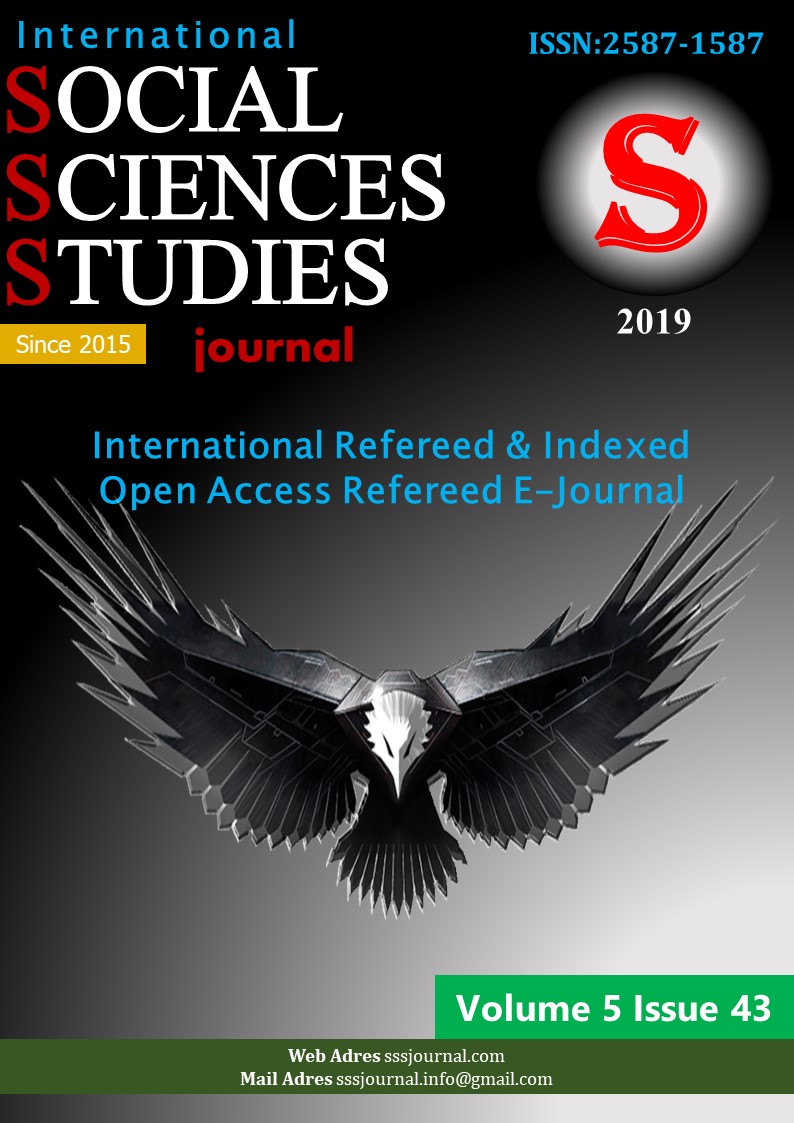Metadiscourse Markers İn Nigerian Newspapers Editorials: A Bond Between Text-Producers And Reading Community
Author :
Abstract
This paper attempts to investigate the philosophy of using metadiscourse markers in four different editorial texts of two Nigerian newspapers, and reports both their qualitative and quantitative distributions and extent of contribution to rendering the writers’ communicative intentions to the readers. Recent research findings indicate that Metadiscourse is central to pragmatic construal which provides writers with appropriate means constructing adequate co-texts and assumptions to influence readers’ understandings of both the text and their attitude in the text content. Accordingly, this paper assumes that metadiscourse markers linguistically encode clue on how text-producers try to instruct and direct their audience (readers) so that both the discourse and the writer’s stance be clearly understood by the reading community.
Keywords
Abstract
This paper attempts to investigate the philosophy of using metadiscourse markers in four different editorial texts of two Nigerian newspapers, and reports both their qualitative and quantitative distributions and extent of contribution to rendering the writers’ communicative intentions to the readers. Recent research findings indicate that Metadiscourse is central to pragmatic construal which provides writers with appropriate means constructing adequate co-texts and assumptions to influence readers’ understandings of both the text and their attitude in the text content. Accordingly, this paper assumes that metadiscourse markers linguistically encode clue on how text-producers try to instruct and direct their audience (readers) so that both the discourse and the writer’s stance be clearly understood by the reading community.
Keywords
- Ädel, A. (2008). Metadiscourse across three varieties of English. Contrastive Rhetoric: Reaching to
- Ädel, A. (2008). Metadiscourse across three varieties of English. Contrastive Rhetoric: Reaching to intercultural rhetoric, 45.
- Bachman, L. F. (1990). Fundamental Considerations in language Testing. Oxford : Oxford University Press.
- Bara, B. G. (2010). Cognitive Pragmatics: The mental processes of communication. MIT Press
- Beauvais, P. J. (1989). A speech act theory of metadiscourse. Written communication, 6(1), 11-30.
- Bedu, A. M. (2017). Semantico-pragmatic Interrelation of Editorials and their Headlines in English- speaking Nigerian Newspaper. Unpublished Ph. D Thesis, Suleyman Demirel University.
- Crismore, A., Markkanen, R., & Steffensen, M. S. (1993). Metadiscourse in persuasive writing a study of texts written by American and Finnish university students. Written communication, 10(1), 39-71.
- Dafouz-Milne, E. (2003). Metadiscourse revisited: a contrastive study of persuasive writing in professionaldiscourse. Regreso al metadiscurso: estudio contrastivo de la persuasión en el discurso profesional. Estudios ingleses de la Universidad Complutense, 11, 29-52.
- Dafouz-Milne, E. (2008). The pragmatic role of textual and interpersonal metadiscourse markers in theconstruction and attainment of persuasion: A cross-linguistic study of newspaper discourse. Journal of pragmatics, 40(1), 95-113.
- Halliday, M. A. (1994). An Introduction to Functional Grammar (2nd edn) Edward Arnold.
- Halliday, M. A., & Hasan, R. (1985). Language, text and context. Victoria: Derkin University.
- Hockett, C. F. (1977). The view from language: selected essays, 1948-1974. University of Georgia Press.
- Hyland, K., & Tse, P. (2004). Metadiscourse in academic writing: A reappraisal. Applied linguistics, 25(2), 156-177.
- Vande Kopple, W. J. (1985). Some exploratory discourse on metadiscourse. College composition and communication, 82-93.
